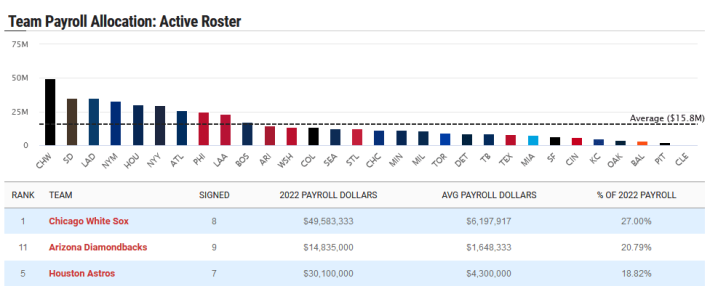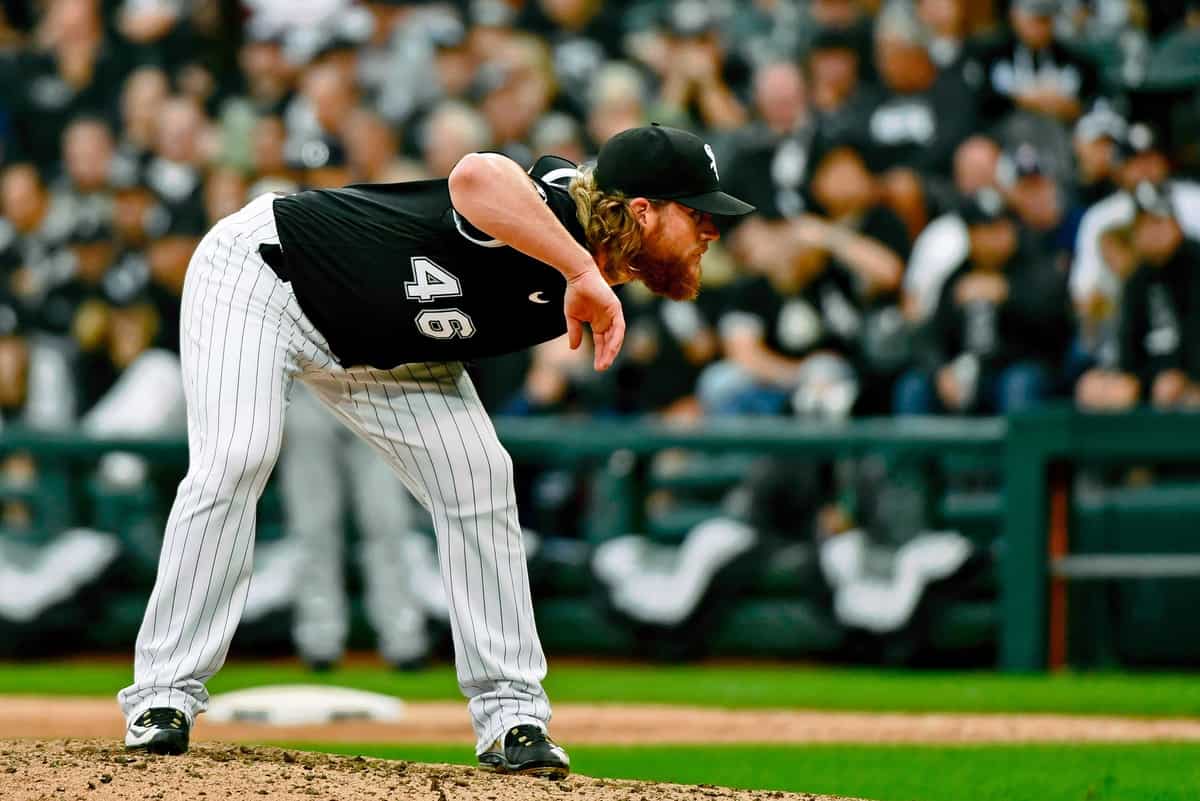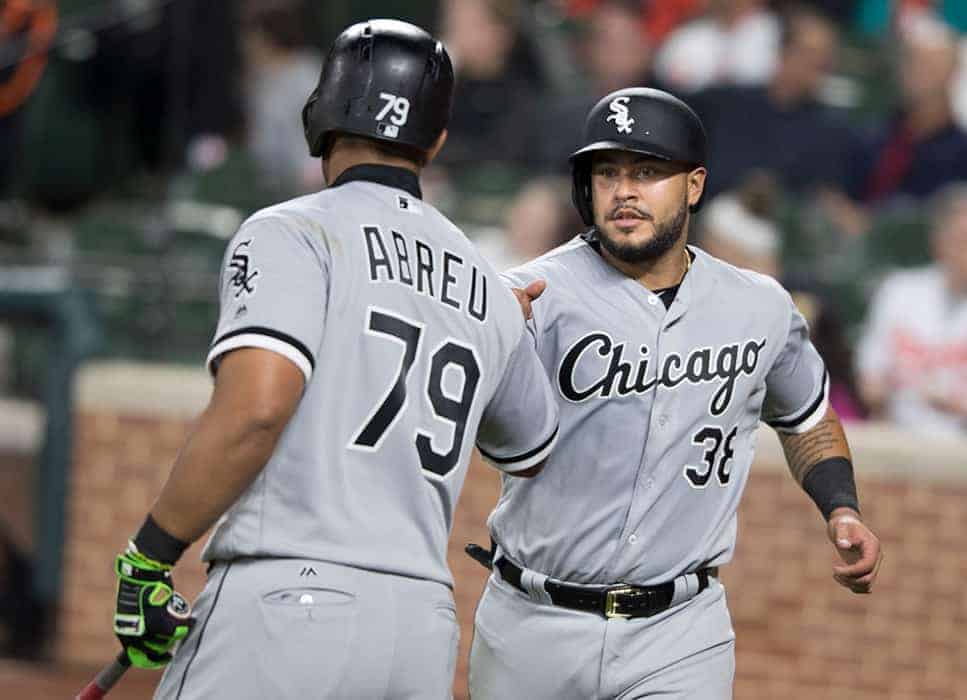It would only be appropriate if Craig Kimbrel went on to dominate ninth innings for the Los Angeles Dodgers, because few players were designed to antagonize a White Sox fan base so thoroughly.
He came from the Cubs for a player of worth (Nick Madrigal). He pitched mostly in high-leverage situations. His imitation of a drying rack lost its edge when it mostly served to raise the tension between wild pitches.
Everything about his existence felt fraught, from the intangible to the measurable, including a detectable decrease in velocity. So, when the White Sox picked up his option after an increasingly miserable monthslong debut, it was difficult to imagine the Sox retaining him, because imagine the reaction if he picked up where he left off. Yet it was nearly as hard to envision a robust market for such a player, especially since Kimbrel's constitution is on the delicate side. Whether or not the ninth inning was a convenient excuse, he still has a history of shaky transitions to new staffs.
The lockout prevented a standard market from forming, and the rush of signings afterward had the urgency of musical chairs, which always leaves somebody on the outside without a seat. Why wouldn't it be Kimbrel?
Fortunately, we no longer have to entertain that question, because money is no object to the Dodgers, and they have position players to spare. With Kenley Jansen heading to Atlanta, the Dodgers saw a way to fill the Kenley Jansen void with a minimal commitment for somebody who could very well resume being unhittable.
That outcome is a lot easier to ignore since the White Sox received AJ Pollock in return. Pollock's injury history is checkered enough to lower the ceiling on his expectations, but he should be able to offer something of value, which would feel more satisfying than taking a victory in being done with Kimbrel.
Besides the exchange of talent, the White Sox were able to reduce their spending on relievers to less comical levels. They led the league with a pitcher to spare before the deal ...

... but while they still hold the edge in portion of payroll devoted to the bullpen, the Dodgers now have them beat in raw dollars.

It also helps that the top six teams in this department are teams worth emulating in at least one way. When the White Sox are among a top tier rather than an echelon of their own, it looks more like a commendable strategy and less like an addiction.
With Kimbrel a Dodger, the biggest question now concerns the extent that Garrett Crochet's damaged UCL will alter the order of things. He'll be out for the next year and a half if he undergoes Tommy John surgery as expected, and a team that's spending $45 million on the bullpen should be able to absorb such a blow, if not two of them. Perhaps Bennett Sousa or another incumbent can fill Crochet's shoes better than expected, but you'd hope that one of the money guys could buy a rookie time to get adjusted.
Here's where Joe Kelly could eventually help, because no incumbent White Sox righty besides Liam Hendriks generated special results against lefties, especially after Evan Marshall's season couldn't be recovered. Kelly has been equally tough on lefties and righties the last two seasons:
| Handedess | PA | AVG | OBP | SLG | BB% | K% |
|---|---|---|---|---|---|---|
| vs. RHP | 122 | .178 | .294 | .280 | 11.5 | 28.7 |
| vs. LHP | 98 | .193 | .255 | .307 | 8.2 | 24.5 |
But this requires a certain amount of faith that Kelly will fully recover from the nerve injury that ended his postseason and delayed his ramp-up this preseason. When we last heard from Kelly, he and the White Sox were targeting a debut date in late April, so the Sox will have to feel their way around matchups against left-handed hitters for a few weeks regardless.






